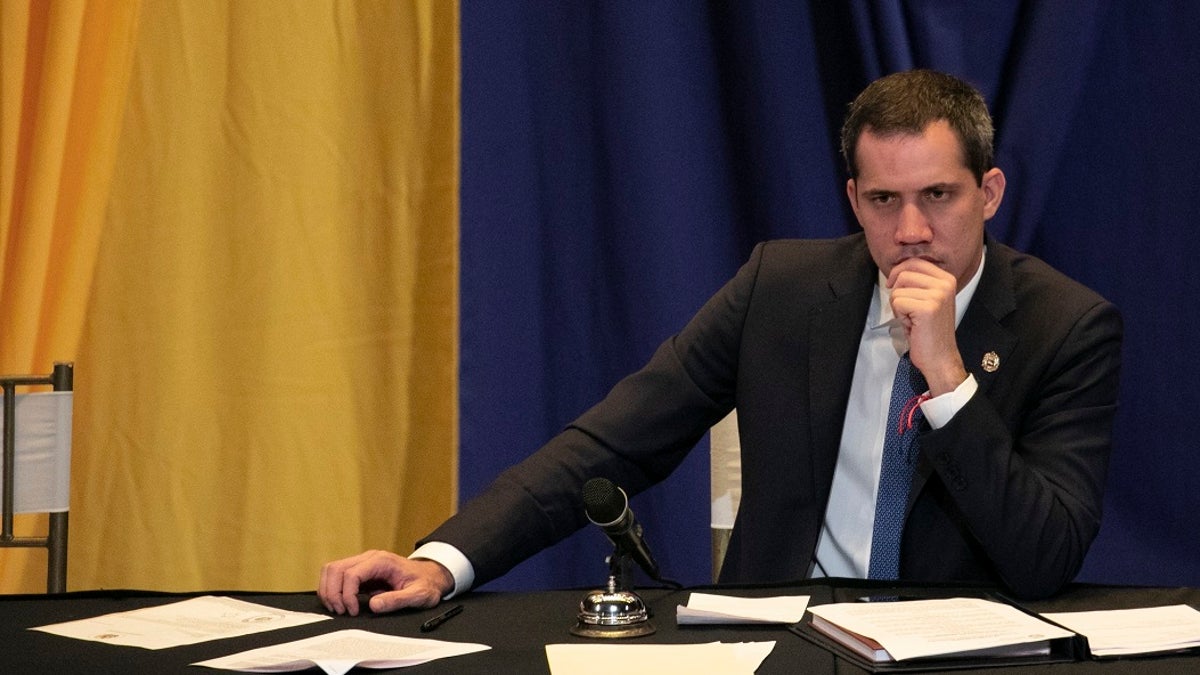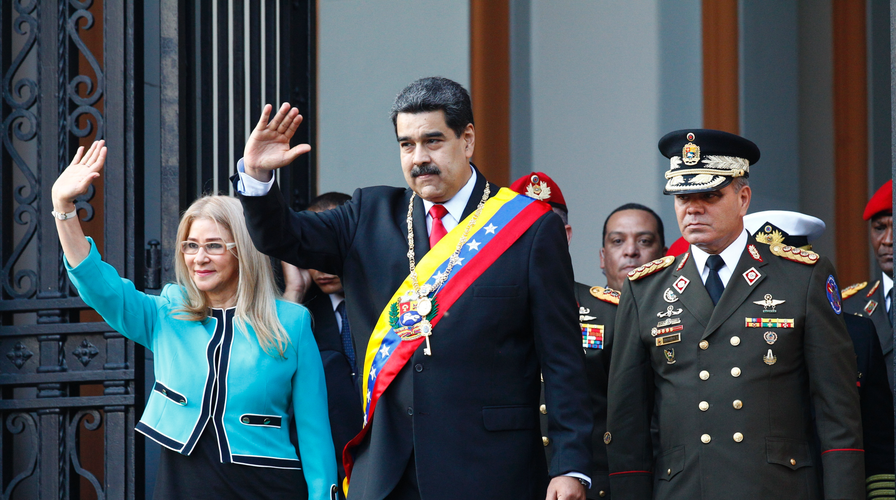Fox News Flash top headlines for September 1
Fox News Flash top headlines are here. Check out what's clicking on Foxnews.com.
Venezuelan President Nicolás Maduro has issued the largest list of presidential pardons since he came to power seven years ago.
On Monday, Maduro expunged the judicial records of more than 100 political opponents, in an effort to bolster the legitimacy of his authoritarian administration prior to the winter's legislative elections.
Nearly 400 Venezuelans were being been held as political prisoners before Monday’s pardons, according to The New York Times.
His pardons included major opposition figures, notably including United States-backed opposition leader Juan Guaidó's former chief of staff Roberto Marrero.
BEHIND MADURO'S 'BIOTERRORISM' ACCUSATIONS AMID VENEZUELAN CORONAVIRUS CRACKDOWN
While several of those who were granted clemency were in prison pending criminal trials, others -- including lawmakers -- had yet to face formal charges but were under investigation. Of that group, some had either hid in foreign embassies in the capital city of Caracas or lived in exile as they fought a host of charges against them.
In the announcement, Communications Minister Jorge Rodríguez called the action a “message to the world and to Venezuela” about the Dec. 6, 2020, races.
While the country's opposition is divided over whether to participate in the elections or not, Guaidó has said he will boycott it.
“Look, we’re fighting here for democracy,” Guaidó told The Associated Press at the beginning of the month. “The fight we’re waging in Venezuela rises from the legitimacy of our constitution.”
In 2018, Maduro declared victory in an election widely viewed as fraudulent.
The Washington Post reported Monday night that the pardons were partially the product of government negotiations with senior opposition leaders who have been critical of Guaidó including former presidential candidate Henrique Capriles.
The Post noted that before Guaidó’s rise to prominence last year, the Venezuelan opposition had been immobilized by infighting.

Opposition leader Juan Guaido listens during a legislative session being held at a religious, private school in Caracas, Venezuela, an alternative location due to the government continuously blocking their access to National Assembly chambers. Guaidó said Monday that two U.S.-based political advisers have resigned following a failed incursion into Venezuela aimed at capturing President Nicolás Maduro. (AP Photo/Ariana Cubillos, File)
Additionally, while Guaidó was able to unite the fragmented party into a united coalition against Maduro's government, mass protests and talks led nowhere.
While Guaidó has warned against the possibility of future election fraud, others have advocated for continued negotiations to join the vote -- including senior members of Venezuela’s influential Catholic Church.
“If [these opposition politicians] want to run, it’s up to them,” Rodríguez said.
Maduro's administration has allegedly offered opposition lawmakers money and pardons if they agree to participate.
Political analysts say that the dissenting factor of the opposition is doing exactly what Maduro wants them to do.
While the U.S. has said it will continue to recognize Guaidó, the challenge in ousting Maduro has only increased.
The U.S. is among more than 50 nations that have recognized Guaidó as the country's interim leader.
CLICK HERE FOR THE FOX NEWS APP
“In our view the constitutional president of Venezuela today and after Jan. 5, 2021, is Juan Guaidó,” the State Department's Special Representative for Venezuela Elliott Abrams told the U.S. Senate’s Committee on Foreign Relations in a hearing. “[Maduro] will not change the legal status for many countries around the world — and especially for us.”
Thus far, an estimated 5 million Venezuelans have fled due to food and gasoline shortages and a broken health care system that is showing signs of buckling as the coronavirus pandemic surges.
The Associated Press contributed to this report.


